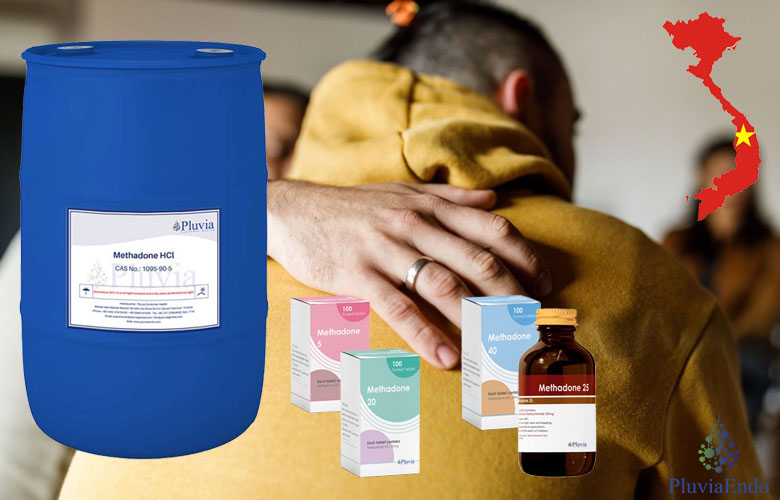The opioid epidemic has become a significant public health crisis worldwide, and Vietnam is no exception. With rising numbers of individuals struggling with opioid addiction, effective treatment solutions are essential. One such solution is methadone, a synthetic opioid that plays a pivotal role in treating opioid use disorder (OUD). In this blog post, we will explore why methadone is used as a treatment option and delve into the Methadone Maintenance Treatment (MMT) program in Vietnam.
What is Methadone?
Methadone is a long-acting opioid agonist used primarily for two purposes: pain management and the treatment of opioid addiction. Originally developed in Germany during World War II, methadone was introduced to the United States in the 1940s as a pain reliever. However, its unique properties as a treatment for opioid dependence were recognized in the 1960s, leading to its widespread use in addiction treatment programs.
Methadone works by binding to the same opioid receptors in the brain as other opioids, such as heroin or morphine. However, it does so in a way that reduces cravings and withdrawal symptoms without producing the euphoric high associated with these drugs. This makes it an effective tool for stabilizing individuals with opioid addiction, allowing them to regain control over their lives.
The Benefits of it in Treatment
- Stabilization of Patients: One of the primary reasons why methadone is favored in addiction treatment is its ability to stabilize patients. By providing a consistent dose of medication, methadone helps reduce cravings and withdrawal symptoms, enabling individuals to focus on their recovery without the constant urge to use illicit drugs.
- Long-Lasting Effects: Methadone has a long half-life, meaning it stays in the body for an extended period. Patients typically take it once daily, which simplifies adherence to treatment protocols and reduces the risk of misuse compared to shorter-acting opioids that require multiple doses throughout the day.
- Improved Quality of Life: Many individuals undergoing methadone maintenance therapy report significantly improved quality of life. With reduced cravings and withdrawal symptoms, they can engage more fully in work, relationships, and other aspects of daily life that their addiction may have negatively impacted.
- Reduction of Harmful Behaviors: Methadone treatment has been shown to decrease risky behaviors associated with drug use, such as needle sharing and engaging in criminal activities to obtain drugs. This benefits the individual and contributes to public health by reducing the spread of infectious diseases like HIV and hepatitis C.
- Supportive Environment: The MMT program often includes counseling and support services alongside medication management. This holistic approach addresses both the physical and psychological aspects of addiction, increasing the likelihood of successful recovery.
The Methadone Maintenance Treatment (MMT) Program in Vietnam
Vietnam has implemented a comprehensive MMT program as part of its strategy to combat opioid addiction. Established in 2008, this program aims to provide accessible and effective treatment for individuals struggling with OUD across the country.
Key Features of Vietnam’s MMT Program:
– Accessibility: The MMT program has expanded rapidly throughout Vietnam, with numerous clinics established to provide methadone treatment. This accessibility ensures that individuals can receive care close to home, reducing barriers to treatment.
– Integration with Healthcare Services: The MMT program integrates into the broader healthcare system, allowing healthcare providers to coordinate care that addresses both physical health and mental health needs. This integration enhances patient outcomes by ensuring comprehensive support.
– Counseling and Support Services: In addition to medication management, patients receive counseling as part of their treatment plan. They also benefit from psychosocial support to aid their recovery. These services help individuals develop coping strategies and life skills necessary for long-term recovery.
– Monitoring and Evaluation: The program includes regular monitoring of patients’ progress and outcomes. This data-driven approach allows healthcare providers to adjust treatment plans as needed and ensures that patients receive optimal care.
Pluvia Endo: A Key Player in Providing Methadone Products
As part of its commitment to supporting addiction treatment efforts in Vietnam, Pluvia Endo manufactures high-quality methadone products. These products are essential for the MMT program. With a focus on quality assurance and compliance with international standards, Pluvia Endo plays a crucial role. It ensures that healthcare providers have access to effective medications. This access is vital for treating opioid dependence.
Methadone and the FDFs products to raise the quality of patient treatment include:
- Methadone HCl
- Methadone Hydrochloride 40 mg
- Methadone 20 mg Hydrochloride
- Methadone Hydrochloride 5 mg
Pluvia Endo designs its methadone products for ease of use and patient adherence. The company focuses on creating formulations that enhance the treatment experience for patients. They offer various formulations that cater to different patient needs while maintaining rigorous safety standards. By providing reliable methadone solutions, Pluvia Endo contributes significantly to improving patient outcomes within Vietnam’s MMT program.
Conclusion
You can answer the question of why methadone is an essential component of addiction treatment by examining its ability to stabilize patients. It is crucial for supporting individuals in their recovery journey. It also plays a crucial role in reducing cravings. Additionally, it improves quality of life and minimizes harmful behaviors associated with drug use. In Vietnam, the MMT program demonstrates how healthcare providers can effectively integrate methadone into a comprehensive approach to combating opioid addiction.
With manufacturers like Pluvia Endo providing high-quality methadone products, Vietnam continues to make strides toward addressing its opioid crisis. The country is implementing accessible and effective treatment options to support individuals struggling with opioid addiction. As we move forward, it is crucial to support ongoing efforts in addiction recovery. These efforts should prioritize patient well-being and community health.







